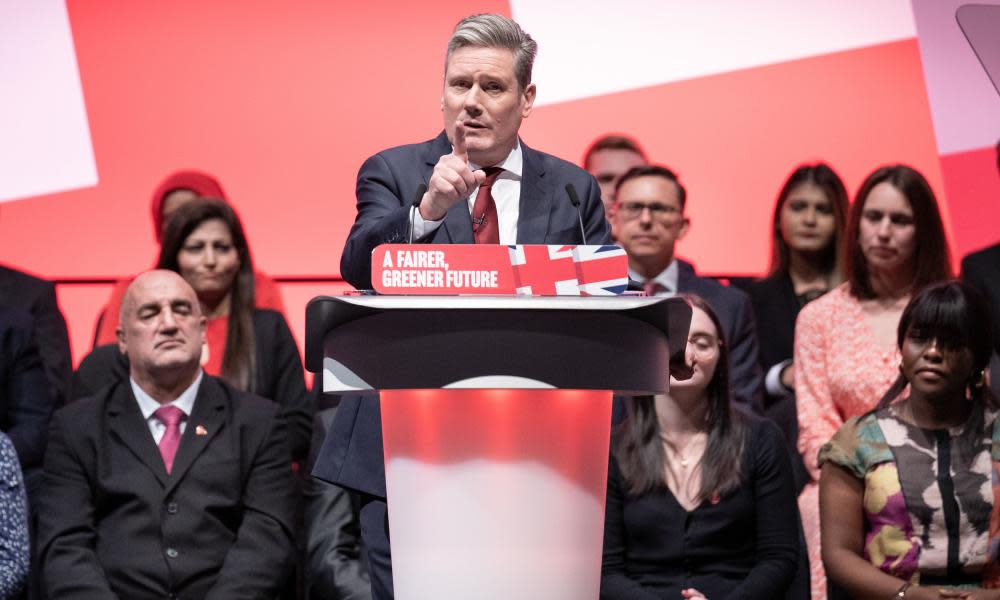Britain’s economic crisis offers an opportunity for new ideas – Labour must be ready

When Liz Truss and her chancellor drew up the policies that crashed the pound and threatened pension funds, they were working to a blueprint devised in the Hotel du Parc of Mont-Pèlerin in 1947.
Among those gathered were the economists Friedrich Hayek and Milton Friedman and the philosopher Karl Popper, and they were profoundly depressed. “The central values of civilisation are in danger,” they declared, caused by a “decline of belief in private property and the competitive market” after the Great Depression and world wars. They fleshed out a belief that the state and collectivism were mortal threats to the individual’s ability to succeed: Margaret Thatcher and her would-be torchbearer Truss would come to follow it with zeal.
The neoliberals, as they became known, used their political exile wisely, going on to found thinktanks such as the Institute of Economic Affairs and the Adam Smith Institute to lay the intellectual foundations and find funders. But what these ideologues really needed was turmoil. “Only a crisis – actual or perceived – produces real change,” Friedman observed. “When the crisis occurs, the actions that are taken depend on the ideas laying around.”
In a foreshadowing of today, the surging inflation of the 1970s – back then, spurred on by a massive oil shock – offered that opportunity. As unions went on strike to defend falling real wages, Thatcher cleverly wove a story of individual effort stifled by the state. “We believe that everyone has the right to be unequal,” she declared, arguing that while ordinary workers were crucial to society, there were “others with special gifts who should also have their chance”. That meant slashing taxes for the rich, flogging off state assets and hobbling trade unions in the name of liberty.
In the eyes of Truss, Thatcher’s prescriptions freed Britain from the corset of socialism and ushered in a new age of prosperity – and so a return to her vision will end the same way. The problem is, it was all a myth. Despite the lifeline offered by the discovery of North Sea oil, economic growth in the 1980s was no greater than the crisis-ridden 1970s, just less equitably distributed.
One rare defender of our current prime minister – from the Institute of Economic Affairs, obviously – beseeched her to stay the course, arguing that early Thatcherism was savaged just as Trussonomics is now, but that it paved the way for the growth of the following decade. A nonsense: the average annual economic expansion in the 90s was the lowest of any postwar decade up to that point, and the next two decades were weaker still. The best performing decade was the 1960s – the heyday of statism. The legacy of Thatcherism was an economy too dependent on the City of London, with communities stripped of secure work, creaking infrastructure and public services, and an explosion of inequality.
When the chancellor, Kwasi Kwarteng, talks of Britain’s “cycle of stagnation”, and Truss damns the “business-as-usual economic management” that has delivered low growth for decades, both are right. But it is the ideas of the Mont Pelerin Society to blame. Slashing corporation tax will punch a £18.7bn-size hole in the nation’s revenues, but trickle-down theory says it will pay for itself with investment. But as the former chancellor Rishi Sunak has said, “that low corporation tax rate we had has done absolutely zilch for investment in our economy, it has not increased, it is still one of the lowest in the developed world: it accounts for over half our productivity difference.”
Just as the winter of discontent became a salutary fable about the dangers of collectivism, “that time the Tories crashed the economy by slashing taxes on the rich” should become an eternal warning hung around the neck of rightwing dogmas. Any attempt to repeat this failed experiment should conjure up images of economic ruin.
Here’s an opportunity for Labour. Unlike Thatcher, Truss has no electoral mandate, limited support from MPs, no North Sea oil or Falklands war, and the communication skills of an unprepared supply teacher. But Friedman was right – in a crisis, radical change depends on the ideas lying around. Labour has made some good tentative steps in the right direction, from nationalisation of rail to a sovereign wealth fund to a public energy generation company. But now’s the time to go further.
Instead of old-style top-down nationalisation, Labour could argue for democratic public ownership, where workers and communities own public utilities. Taxes on wealth and income could fund devastated public services, and fix inequalities that even the International Monetary Fund now recognises destabilise the economy. A new charter of rights for trade unions and higher wages could stop the wealth generated by workers being hoovered up by a tiny few, stashed away in tax havens. A Swiss dream became our nightmare – but their hubris will only truly meet its nemesis if Labour has the same courage and determination as the true believers of Mont Pelerin.
Owen Jones is a Guardian columnist

 Yahoo Movies
Yahoo Movies 
